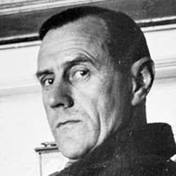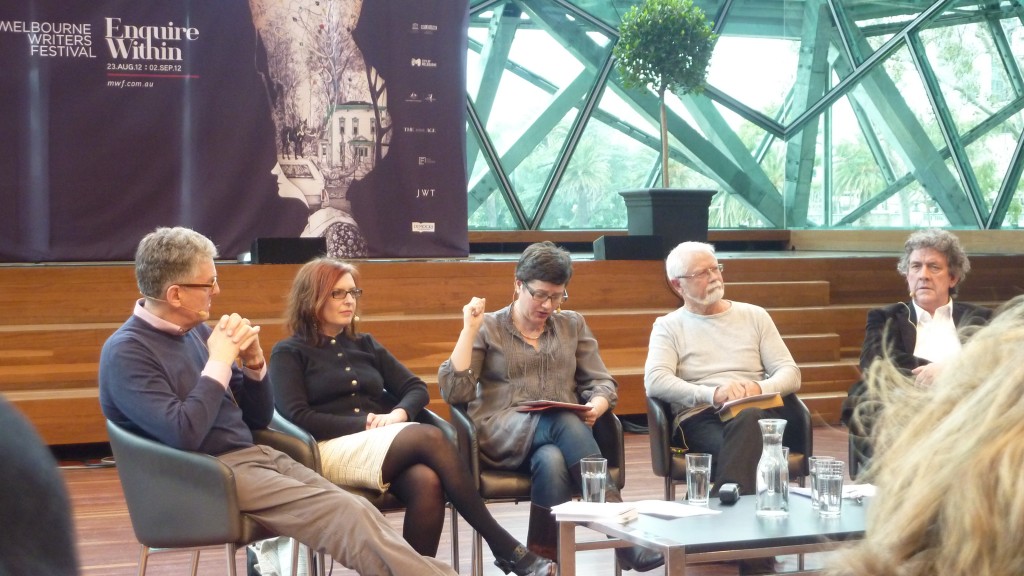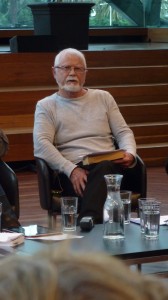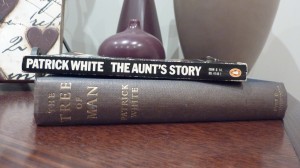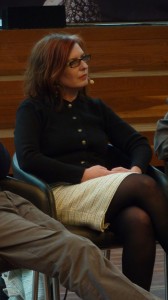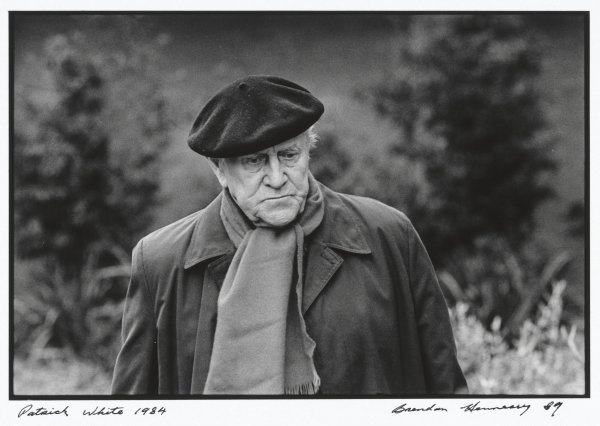The Melbourne Writers Festival program is so incredibly diverse, it’s often difficult to decide which sessions to attend on any given day. It’s impressive, not just because of the topical matters being debated and the latest award-winning authors we’re able to meet, but because the festival also celebrates and pays tribute to our best writers from days past.
This year marks the centenary of the birth of one of our greatest writers – Patrick White, who died aged 78 in 1990. In 1972, he was awarded the Nobel Prize for Literature, he published 4 novels, several short story collections, a screen play, eight plays and an autobiography, not to mention winning the Miles Franklin Award twice.
When I saw the line-up of panelists discussing ‘Remembering Patrick White’ on Sunday, I knew it would be an event ‘not-to-be-missed’. It included writer and editor Sophie Cunningham as chair; one of Australia’s best-known literary critics Peter Craven; two-time Miles Franklin winner, author Rodney Hall: one of Australia’s leading lyrical poets and authors Alison Croggon, and finally, author and TV presenter David Marr who also wrote Patrick White’s biography, A Life.
To list all their individual achievements and accomplishments would take the length of another Blog and only serve to make us all feel like super under-achievers, so we’ll just focus on Patrick for now.
Sophie began the session with a delightful description of her passion for White’s work that began as a teenager. ‘He’s the writer that made me want to read Australian writers and changed the way I saw my country and books about my country. If they’d made posters of Patrick White at the time I would have put them on my wall next to Kate Bush.’ She even confessed to dating two men purely on the basis that their mothers had enjoyed afternoon tea with White. She later completed a thesis on White and says The Vivisector was one of the reasons she became a writer.
A surprise element that made the afternoon particularly special was performances from two actors reading passages from White’s books or plays that were chosen by each of the panelists. Bringing the words to life was the perfect way to celebrate White’s immense talent. It was like being jolted back to a first reading of his work — where the words jump off the page and you bow down to his to a his ability to capture the quintessential Australian spirit with vivid language; painting landscape and characters alike with unique brushstrokes.
Rodney Hall likewise spoke of his astonishment when he first read one of White’s books. ‘He sandwiches radiant insights between satiric portraits of the local community,’ he said. With lines like ‘Mrs Flack laughed like a motorbike,’ Hall said White’s writing was a workout for the imagination. ‘All his books take us to profound areas. They are exhilarating. I hope we will, once again as a nation, embrace him as essential to the voice of his generation, as a voice of Australia at a time when we were re-making ourselves as a nation separating from the British Empire. He was a brave man who gave us very brave books.’
Peter Craven chose a section from Tree of Man for a recitation. ‘After reading it for the first time, I’d never been more humbled or exulted in my life,’ he said, describing it as an intensely dramatic bush epic.
‘It’s quite unrivalled in its depiction of, if you like, common folk.’ But he speaks highly of all White’s work. ‘They’re all bloody masterpieces as far as I can see, right up to the last novel,’ he said. “In a sense, Voss is like our desert Macbeth or Hamlet.’
The best performance of the afternoon came from White’s play, A Cheery Soul — the actors winning loud applause from the audience. The piece was chosen by Alison Croggon, She expressed disappointment that Australia had never given White’s plays the appreciation they deserved. ‘He has a novelist’s gift for character, and, crucially, a poet’s ear for the sensuous properties of language. I’ve never understood those who dismiss Patrick White’s plays as secondary works. Is it simply that we like our artists to fit neatly into pigeonholes?’ She then read a quote about literary critics being suspicious of writers who change genres and agreed with critic John McCallum who believed White to be “one of the most important Australian stage writers of the 20th century”.
The most engaging delivery came, understandably, from David Marr. Not only does he use his experience as a television presenter to talk naturally to the audience, as White’s biographer, he has a depth of knowledge that allows him to speak freely without notes. Marr spent six years in White’s company writing the book and admits that toward the end, ‘it got a bit ragged.’ White was ill and becoming impatient it was taking too long. ‘He’d ring me up and say “When are you going to finish that fucking book?” And slam down the phone.’
But Marr relates the story fondly and staunchly defends White against accusations of surliness and having a bad temper. Marr believes White didn’t allow many people into his world because he was wholly dedicated to his life as an artist. He wouldn’t compromise. ‘He went at his life with a ferocity,’ said Marr, ‘determined to be the artist he knew he had to be. He had to lock people out. He had to say no. He was keeping the world at bay and his head down. He was with the people he needed to be with. But that took a toll on him. He was in fact the most generous of men and could be the most welcoming of men. And he wanted to be great. This man was a wholly serious artist.’ Marr says it was only because of being that way, that White was able to give us what we have today.
I think we can forgive him, don’t you?
(p.s.. And thank you David Marr for giving me an excuse for the next time I want to be a cranky old bastard.)

